第58章 VII. CONCLUSION(1)
Nunc est bibendum. Delivered from its fears and pleased at having escaped from so great a danger, the government resolved to celebrate the anniversary of the Penguin regeneration and the establishment of the Republic by holding a general holiday.
President Formose, the Ministers, and the members of the Chamber and of the Senate were present at the ceremony.
The Generalissimo of the Penguin army was present in uniform. He was cheered.
Preceded by the black flag of misery and the red flag of revolt, deputations of workmen walked in the procession, their aspect one of grim protection.
President, Ministers, Deputies, officials, heads of the magistracy and of the army, each, in their own names and in the name of the sovereign people, renewed the ancient oath to live in freedom or to die. It was an alternative upon which they were resolutely determined. But they preferred to live in freedom. There were games, speeches, and songs.
After the departure of the representatives of the State the crowd of citizens separated slowly and peaceably, shouting out, "Hurrah for the Republic!"
"Hurrah for liberty!" "Down with the shaven pates!"
The newspapers mentioned only one regrettable incident that happened on that wonderful day. Prince des Boscenos was quietly smoking a cigar in the Queen's Meadow when the State procession passed by. The prince approached the Minister's carriage and said in a loud voice: "Death to the Republicans!" He was immediately apprehended by the police, to whom he offered a most desperate resistance. He knocked them down in crowds, but he was conquered by numbers, and, bruised, scratched, swollen, and unrecognisable even to the eyes of. his wife, he was dragged through the joyous streets into an obscure prison.
The magistrates carried on the case against Chatillon in a peculiar style.
Letters were found at the Admiralty which revealed the complicity of the Reverend Father Agaric in the plot. Immediately public opinion was inflamed against the monks, and Parliament voted, one after the other, a dozen laws which restrained, diminished, limited, prescribed, suppressed, determined, and curtailed, their rights, immunities, exemptions, privileges, and benefits, and created many invalidating disqualifications against them.
The Reverend Father Agaric steadfastly endured the rigour of the laws which struck himself personally, as well as the terrible fall of the Emiral of which he was the chief cause. Far from yielding to evil fortune, he regarded it as but a bird of passage. He was planning new political designs more audacious than the first.
When his projects were sufficiently ripe he went one day to the Wood of Conils. A thrush sang in a tree and a little hedgehog crossed the stony path in front of him with awkward steps. Agaric walked with great strides, muttering fragments of sentences to himself.